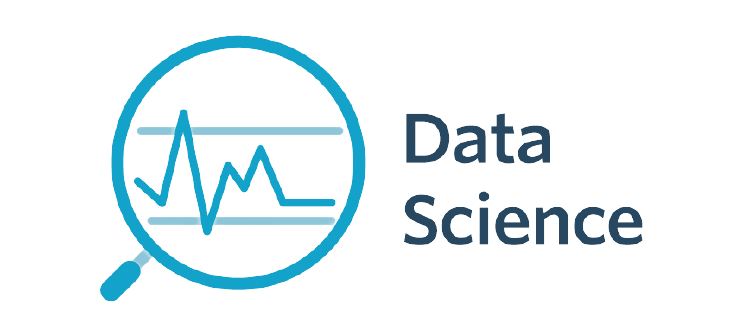Data Science Training
Learn Data Science from Karthik Trainings, where we commit to providing quality, practical and career-building Training. Join us to make a difference in the Data Science space!!
Watch Demo
100 Hours of Live Training
Real-Time Project Implementation
Certification Completion
Lifetime Career Guidance Support
Job Support
Why Karthik Trainings for Data Science
Explore Data Science course from Karthik Trainings. We provide you with the best Data Science training in the market. We value your passion for making a difference in technology and providing you with the necessary environment to reach your goals. As a result, we have produced many Data Scientists in the market who are making remarkable differences in the technology in the Data Science space.
Our trainers are extremely talented and have the zeal to train the students in the Data Science space who are responsible for shaping your career as a Data Scientist. So come and join us in the journey of shaping dreams into reality. What we commit is what we deliver, which is our primary motto.

Data Science Key Features
Training from Industry Experts
100% Job Assistance
Career Guidance
Work Support
Live Projects with Real time scenarios
Timely Doubt Solving
Flexible Timing
Book Free
Demo Class
Data Science Syllabus
Overview and Evolution of Data Science
- Understanding Data Science and its Evolution
- Importance of Data Science in day to day life
- Introduction to R Programming
Working with Python Fundamentals
- Introduction to Python
- Working on Indentations
- Working with data types and operators
- Understanding Python Functions
Introduction to Data Structures and Data Manipulation
- An Overview on Data Structures
- Working in Identifying the Data Structures
- Allocation of values to the Data Structures
- Manipulating Data and its importance
- Dplyr Package and performing different data manipulation operations.
Working on Data visualization
- Understanding Data Visualisation concept
- Understanding Graphs and Graphics grammar
- Working on Ggplot2 package
- Multivariate analysis by using geom_boxplot
- Univariate analysis with histogram, barplot, multivariate distribution, and density plot.
- Working with the bar plots for the categorical variables through geop_bar() and including the themes through the theme() layer.
Working on Statistics
- Importance of Statistics Importance
- Working on Statistics classification and terminology.
- Understanding Data types, Probability types, measures of speed, and central tendency.
- Understanding Covariance and Correlation, Binary and Normal distribution
- Understanding Data Sampling, Confidence, and Significance levels.
- Working with Hypothesis Test and Parametric testing
Machine Learning End-End Understanding
- Understanding fundamentals of Machine Learning
- Working with Supervised Learning, Classification in Supervised Learning
- Working with Linear Regression and mathematical concepts related to linear regression
- Working with Classification Algorithms, Ensemble Learning techniques
Working on Logistic Regression
- Introduction to Logistic Regression
- Understanding Logistic vs Linear Regression, Poisson Regression
- Bivariate Logistic Regression, math related to logistic regression
- Multivariate Logistic Regression, Building Logistic Models
- False and true positive rate, Real-time applications of Logistic Regression
Working on Random Forest and Decision Trees
- Techniques.used in Decision Tree Induction Algorithm
- Random Forest implementation in R
- Classification tree vs Regression tree
- Naive Bayes, SVM
- Entropy, Gini Index, Information Gain
Understanding Unsupervised learning
- Clustering, K-means clustering, Canopy Clustering, and Hierarchical Clustering
- Unsupervised learning, Clustering algorithm, K-means clustering algorithm
- K-means theoretical concepts, k-means process flow, and K-means implementation.
- Implementing Historical Clustering in R
- PCA(Principal Component Analysis) Implementation in R
Understanding and Working with Natural Language Processing
- Basics : Natural language processing and Text mining
- Working on use-cases of text mining
- NPL working with text mining, Language Toolkit(NLTK)
- Text Mining: pre-processing, text-classification and cleaning
Introduction to Mathematics for Data Science
- Working on Numpy
- Working on Numpy Mathematical Functions
- Understanding Probability Basics and Notation
- Working with Correlation and Regression
- Working on Joint Probabilities
- Understanding Bayes Theorem
- Working on Conditional Probability, sum rule, and product rule
Scientific Computing through Scipy
- Introduction to Scipy and its characteristics
- Scipy sub-packages like Integrate, Cluster, Signal, Fftpack, and Bayes Theorem
Integrating python with Spark
- Understanding Pyspark fundamentals
- Pyspark usage
- Installing Pyspark
- Pyspark advantages comparing with MapReduce
- Pyspark applications
Working on Deep Learning and Artificial Intelligence
- Effect of Machine Learning on Artificial Intelligence
- Basics and Working with Deep Learning
- Regression and Classification in the Supervised Learning
- Association and Clustering in unsupervised learning
- Understanding Artificial Intelligence and Neural Networks
- Supervised Learning in Neural Networks, multi-layer network
- Deep Neural Networks, Convolutional Neural Networks
- Reinforcement Learning, dnn optimisation algorithms
- Recurrent Neural Networks, Deep learning graphics processing unit
- Deep Learning Applications, Time series modeling
Working on Keras and TensorFlow API
- Basics understanding on Tensorflow open-source libraries
- Deep Learning Models and Tensor Processing Unit(TPU)
- Graph Visualisation, keras
- Keras neural-network
- Defining and Composing multi-complex output models through Keras
- Batch normalization, Functional and Sequential composition
- Implementing Keras with tensorboard, customizing neural network training process
- Implementing neural networks through TensorFlow API
Working on Restricted Boltzmann Machine and Autoencoders
- Autoencoders basics and rbm
- Working RBM for the deep neural networks
- Features and applications of Autoencoders
Working on Big Data Hadoop and Spark
- Introduction to Big Data and Hadoop Basics
- Working on Hadoop Architecture, HDFS
- Working on MapReduce Framework and Pig
- Working on Hive and HBase
- Basics of Scala and Functional Programming
- Kafka basics, Kafka Architecture, Kafka cluster and Integrating Kafka with Flume
- Introduction to Spark
- Spark RDD Operations, writing spark programs.
- Spark Transformations, Spark streaming introduction
- Spark streaming Architecture, Spark Streaming Features
- Structured streaming Architecture, Dstreams, and Spark Graphx
Working on Tableau
- Basics of Data Visualisation
- Working on Data Visualisation Applications
- Working with Tableau Installation and Interface
- Working with Tableau Data Types, Data Preparation
- Understanding Tableau Architecture
- Getting Started with Tableau
- Creating sets, Metadata and Data Blending.
- Arranging visual and data analytics
- Mapping, Expressions, and Calculations
- Parameters and Tableau prep
- Stories, Dashboards, and Filters
- Graphs, charts
- Integrating Tableau with Hadoop and R
Working on MongoDB
- MongoDB and NoSQL Basics
- MongoDB Installation
- Significance of NoSQL
- CRUD Operations
- Data Modeling and Management
- Data Indexing and Administration
- Data Aggregation Schema
- MongoDB Security
- Collaborating with Unstructured Data
Working on SAS
- SAS Basics
- SAS Enterprise Guide
- SAS functions and Operators
- SAS Data Sets compilation and creation
- SAS Procedures
- SAS Graphs
- SAS Macros
- PROC SQL
- Advance SAS
Working with MS Excel
- Understanding below
- Entering Data
- Logical Functions
- Conditional Formatting
- Validation, Excel formulas
- Data sorting, Data Filtering, Pivot Tables
- Creating charts, Charting techniques
- File and Data security in excel
- VBA macros, VBA IF condition, and VBA loops
- VBA IF condition, For loop
- VBA Debugging and Messaging
Courses to
uplift your
career
Enroll For Demo
Get enrolled for free demo sessions, which will give you more clarity about Data Science questions like job opportunities in the market, long-term career path, and certifications.
Learn from
Best Instructors
Our Data Science courses are well
structured and taught by recognized
professionals which helps one to learn
Data Science fast.

Students Review

Ramesh
Hello..I took training from Karthik Trainings for which I’m glad about the decision that i have made. Karthik trainings is the best Selenium Online training institute.

Srikanth
According to me Karthik Trainings is a place where we shape our careers right from training , interview guidance , placement opportunities and work support. It’s a One stop shop for everything related to technology!! I’m glad that I have been through this Selenium course!!

Hemanth
One thing that I get into my mind about Karthik trainings on Selenium training is the quality of training . They have the best tutors in the world who are very passionate about the delivery of selenium courses. I think if you really want to shape your career in Selenium, karthik training is the best place to learn selenium training.
Frequently Asked Questions
Who Can Learn Data Science?
We know that DataScience will be our future and its demand in the market is exponentially increasing. Learning DataScience will be definitely a great choice to shape one’s career in the technology space.
Job Market in Data Science Space
Currently, in the market, there are a huge number of job openings in the DataScience space. Technically if we are good, getting a highly paid job is a simple task in this space.
Join Demo Classes
Enroll and get two free live sessions on the platform with Industry expert trainers.